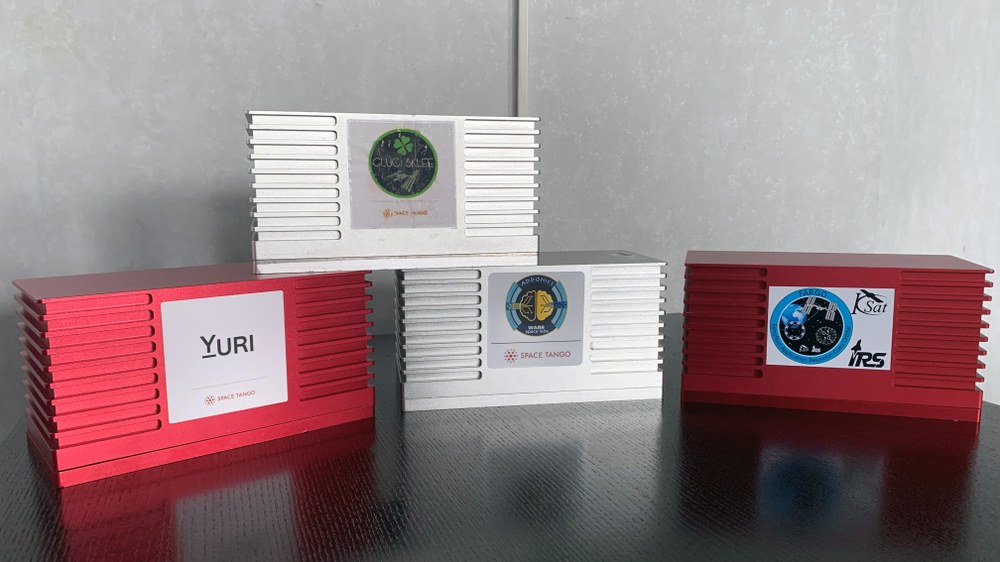Student competition 'Überflieger 2'

The winners were selected from all entries in a two-stage process. In the first stage, a jury of experts selected the eight best German and the four best proposals from Luxembourg from all the entries.
These teams were able to present their experimental ideas in detail at a selection workshop and answer questions from the panel of experts. At the end of the workshop, the three best German teams and the best Luxembourg team were selected by the jury and were able to realise their experimental ideas.
The winning teams witnessed the rocket launch

The winning teams received financial support and technical advice for the construction of their experiments. In March 2023, the four winning experiments were then transported to the ISS on a cargo flight and operated there for more than 30 days. As a further highlight, the winning teams were given the opportunity to witness the rocket launch with their experiment on board at the launch site.
'Überflieger 2' is supported by the German Physical Society (DPG). The technical implementation partner is the company yuri GmbH from Meckenbeuren in Baden-Württemberg. The German part of 'Überflieger 2' is funded by the German Federal Ministry for Economic Affairs and Climate Action (BMWK).
The first Überflieger competition took place in 2017. The winners were the student experiments EXCISS (University of Frankfurt) and ARISE (University of Duisburg-Essen), which focussed on the formation of planets, and the PAPELL experiment (University of Stuttgart) on the development of a new pump technology. The experiments were carried out during the ISS mission of German ESA astronaut Alexander Gerst in 2018.
Contact
DLR contact office 'Überflieger 2'

